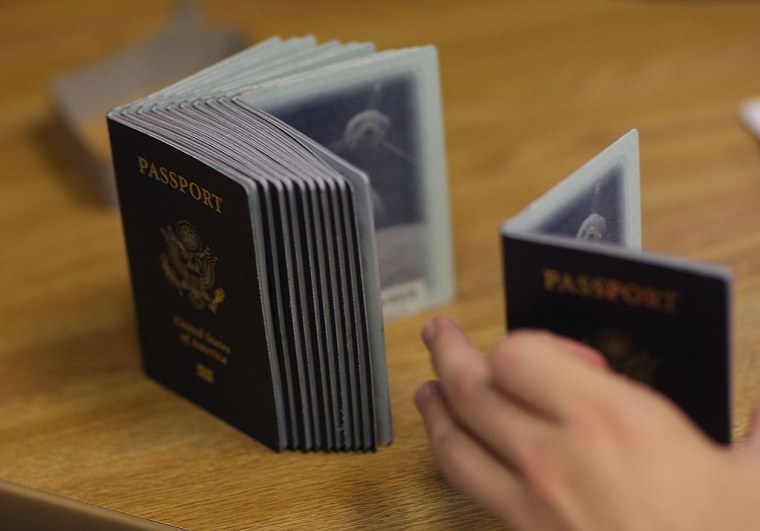After watching rights and protections slowly expand under President Barack Obama, the transgender community is nervous a tidal wave of Republican policies could wash away years of progress. Armed with an anti-LGBTQ party platform, the Republican Congress combined with the Trump administration could upend rules that many trans people and their advocates say have not only enhanced their liberty, but their safety as well.

“There are gender protections that are built into federal regulations –- housing, healthcare, etcetera –- that can be undone with the stroke of a pen,” Bob Witeck, of the Washington, D.C.-based strategy firm Witeck Communications told NBC OUT.
“Education, scholarships, access,” Witeck said, “Those are things that could be stripped out in January when [the new administration] arrives in office.”
The worry has prompted exponential growth to an existing social media movement designed to help trans people fund changes to everything from birth certificates to college transcripts. After undergoing a transition, trans people are left with a cadre of documents that don’t align with their gender identity.
The day after the election, Twitter user Monica Farrell (@monica_farrell) offered to pay for changes to passports for trans people who need them. Her offer came in response to a tweet that suggested the rules allowing for such changes could be rolled back by a new administration. It quickly racked up more than 3,000 retweets as offers of help flooded in.
“If you’re undergoing a transition, it can be very visible and people can end up unemployed during their transition, and that’s when they need income the most,” said Kendra Albert, who is among those who stepped in to connect donors to those in need. “For a lot of trans people, $200 [for a passport] is a lot of money. Especially when you didn’t think you’d need it this soon.”
The concept of a social aid movement wasn’t foreign to Albert, a California attorney who previously helped Detroit residents struggling to pay their water bills in a similar way.
Just two days after the election, Albert had personally made at least 50 such connections and was being contacted by more people all the time.
On Nov. 9, Twitter user @dtwps typed out the hashtag #TransLawHelp, and the movement began to coalesce. Now, just a week from that hashtag's birth, Albert reports matching more than 250 people in need with more than $49,000 in donations, adding "Of course, we're not stopping there!”
Speaking to NBC OUT using the name Voz — Spanish for voice — Twitter user @BosqueLatina said she quickly found help to fund her document changes through the hashtag #TransLawHelp. She related that both the scope and the importance of the task is huge.
“Everything in your wallet, in a safety deposit box or a file at home, all of that has to be changed,” Voz said. “Imagine being pulled over by a policeman. He says ‘license and registration,’ you hand them to him, and he says, ‘excuse me this isn’t your license, what are you trying to pull?’ This is why your credentials must match, if they don’t, the full force and weight of the state drops on you like a hammer.”
She described the list of needed changes as “exhaustive, exhausting, and long” noting they include everything from a voter registration card to a birth certificate, a document which itself is central to securing many of the other necessary documents. In addition to money to help with the fees –- which in some cases can total in the thousands of dollars –- she’d been connected to an attorney in her birth place of Texas to help guide the process and handle some of the affairs in person.
Chase Strangio, an attorney with the ACLU, said while uncertainty about the future drives much of the fear, trans people are navigating a real world where laws like North Carolina’s now-notorious HB2 get passed. The law limits access to public restrooms to gender assigned at birth. Not only can failing to have the proper ID restrict access, it can restrict upward mobility as well.
“If you cannot access an ID that says you’re a woman, you’re outed as trans every time you go to apply for a job, to apply for an apartment. That adds to financial desperation,” Strangio said. “It can be a vicious cycle, so if we can intervene and disrupt that, it would be an incredibly important and transformative thing to do.”
